
A better-late-than-never December Fiction Roundup! Thanks to travel and holidays, last month gave me time for 7 novels, pretty much evenly spit between been-meaning-to-read-that-one-forever classics and recent discoveries. 2017 was an eye-opening year for me, and this collection encapsulates its contradictions better than any stretch since I started writing these reviews. Remember: the ratings are arbitrary; they’re wholly dependent on time and place, expectation and emotional release. These authors don’t need me to rate them. Read all of these. Read everything.

Of the 40 or so books I read in 2017, Hannah Lillith Assadi’s Sonora (4.5/5) was the single least popular according to Goodreads — a whopping 357 readers by my last count. That is an honest-to-God tragedy.
This is a gorgeous, lyrical debut. I’m stunned it’s a debut, because it packed an emotional wallop like little else this year. It’s a mesmerizing coming of age story, following two girls’ journey from the Sonoran desert of Arizona to the drug-addled blur of New York City. Assadi is an extremely self-assured writer, with a heart wide enough to encompass the tiny details of adolescent loneliness, and a knack for brilliant turns of phrase. Sonora functions less as a novel than a hypnotic, dreamy poem; some cross between an Aronofsky flick and a Mountain Goats album. In fact, while reading I couldn’t shake the comparisons to John Darnielle’s Wolf In White Van and Universal Harvester. Assadi’s desert functions much like Wolf’s Trace Italian or Harvester’s empty planes: an endless source of possibility and dread. Read this book. It’s lovely.
“Like faces, the smell of a person cannot be replicated. The smell of a fire in my hair from a particular party, the smell of a friend’s perfume rubbed into my shirt. The smell of lipstick and chalk soaking the dressing rooms at dance rehearsals. The smell of a lover in your fingernails the morning after. The smell of my mother: orange peel, suntan lotion, faint vanilla. The smell of Laura: lavender laundry detergent, danger, linger of red wine, sweat, cigarette. The smell of Eli: the smell of seventeen, of the beach at night, coconut, white blossom, salt, stars. The smell of Dylan: vodka, fire, dirt in autumn, February in the desert.”
“The Andromeda Galaxy is one of the few blue-shifted galaxies in the universe. Instead of being torn away from us by a force far greater than gravity, the fate that commands the red-shifted galaxies, the force that will cause all the lights to one day go out, Andromeda is coming for us at eighty-five miles per second. In four billion years, far after the sun has grown too hot for us to live, it will crash into us, into the Milky Way. My father, a Palestinian, and my mother, an Israeli, met in a bar in New York. Their encounter was a blue shift. An anomaly. A collision. In the end, I understand, it is only for this we live. All I ever wanted was to love.”
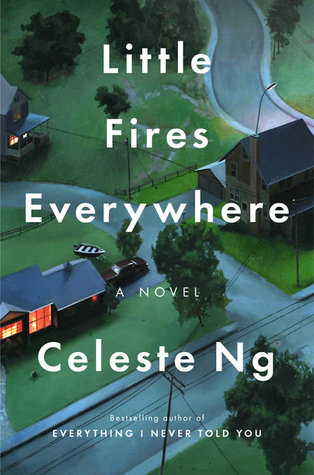
Little Fires Everywhere (4/5) was my first introduction to Celeste Ng and, I’ll be honest, I didn’t quite understand the hype at first. This is a book that sneaks up on you; that has no overt desire to impress you. A modestly-scaled drama about an upper-class suburban family and their lower-class tenanst, it skirts some line between Stepford Wives-ian satire and empathetic, teenaged sincerity…and it never really leaves that territory. But, thanks largely to Ng’s phenomenal character work (her distinct narrative voices for each character, and the way their POVs transition to one another mid-scene, is a highlight — the likes of which I haven’t seen since Imagine Me Gone), we shift as the story continues. Somewhere around the halfway point, I found myself totally invested in the story, both in relation to the particular citizens of Shaker Heights, and in the socioeconomic tensions their journeys represent. It’s a neat little morality tale, which raises questions about gentrification, parenthood, and aw-shucks white liberalism that I’m still wrestling with today. A calming, thoughtful read.
“Now, as a teenager, Pearl’s caresses had become rare—a peck on the cheek, a one-armed, half-hearted hug—and all the more precious because of that. It was the way of things, Mia thought to herself, but how hard it was. The occasional embrace, a head leaned for just a moment on your shoulder, when what you really wanted more than anything was to press them to you and hold them so tight you fused together and could never be taken apart. It was like training yourself to live on the smell of an apple alone, when what you really wanted was to devour it, to sink your teeth into it and consume it, seeds, core, and all.”
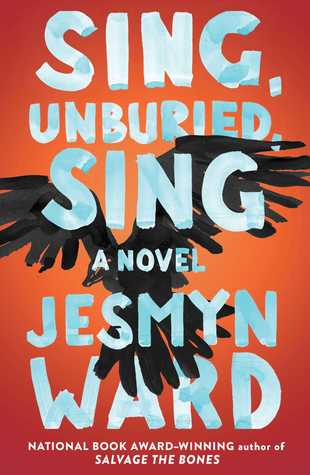
Jesmyn Ward is a marvelous wordsmith; the rare sort of writer whose work only improves when spoken aloud. I primarily listened to Sing, Unburied, Sing (4/5), and I’d suggest you do the same: it’s a chilling, provocative experience, occupying a space somewhere between novella and spoken-word poem. Like Saunders’ Lincoln in the Bardo, Ward’s is a puzzle that I A) have no desire to explain in plot terms, and B) can’t wait to reread and unpack. In fact, without giving away too many plot points, the two go hand-in-hand for a number of reasons. Following a mother and son’s drive through the Gulf Coast of Mississippi to pick up a father from prison, Sing, Unburied, Sing is a gorgeous open wound; a rumination on racism and hopelessness as unflinching as it is specific. I’m not sure I fully understood it, but I was haunted by it. An outstanding choice for the National Book Award.
“Given slumps and runs his hands up and down the doorsill; he did this when he was alive, wore the wood of the sills in the house smooth with his rubbing. He freezes and looks at me, and I wish he was alive, was flesh, because I’d kick him. Kick him for not being able to speak. Kick him for seeing whatever it is he sees or hears out in the yard and not sharing that with me. Kick him for being here, now, for taking up space in the waking, sober world, right before me. For knocking the world sideways—birds flying into glass windows, dogs barking until they piss themselves in fear, cows collapsing to their rumps in fields and never rising—still winking and smiling, every dimple and tooth declaring the joke. For dying. Always for that.”
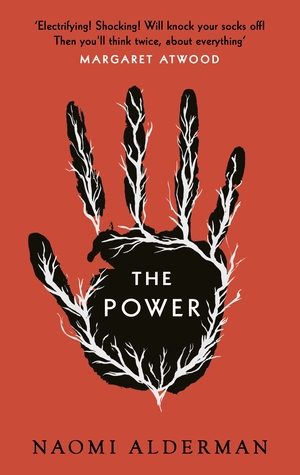
The Power (3/5) was a frustrating book for me. Frustrating because it presents one of the most compelling ideas I’ve read all year, and it does substantially less with it than I’d wanted. Here’s the premise: imagine if women were more powerful than men. More specifically, imagine a world where women are capable of shooting electricity from their fingertips. What would change? Fear of walking the streets at night? Power structures in the workplace? In government? The dynamics of sex? Centuries ago, physical power differentials crystallized for us a society of male control and female submission. If the scales tipped today, could the same structure hold?
It’s a premise I’ve found myself thinking about for weeks since finishing the book. Here’s the problem, though: I’m not convinced Naomi Alderman shares my enthusiasm for the questions the premise begs. Rather than drill down into the human element, The Power seems more interested in going bigger and broader; constructing a world where every terrible male behavior is slowly substituted for an equal and opposite female behavior, with little by way of motive or sober reflection. Religions shift from patriarchal to matriarchal. Men are treated as subservient eye-candy. And in a passage which, to me, read as a bit shallow and unearned, sexual assault swaps pronouns while remaining semantically identical; complete with justifications of “__ was asking for it”, “__ could have stopped us,” etc. Time and time again, events seem to happen not because women would do them, but because men currently do; highlighting the absurdity of our behavior and its terrible justifications. In that sense, it reads less like an exploration of gender and sexuality, and more like a pitch-black satire or revenge fantasy — a satisfying one to many female readers, I’m sure, just not the journey I was hoping to take.
“She is in a high and lofty realm, a place where the lungs fill with ice crystals and everything is very clear and clean. It scarcely matters what is actually happening. She could kill them. That is the profound truth of it. She lets the power tickle at her fingers, scorching the varnish on the underside of the table. She can smell its sweet chemical aroma. Nothing that either of these men says is really of any great significance, because she could kill them in three moves before they stirred in their comfortably padded chairs. It doesn’t matter that she shouldn’t, that she never would. What matters is that she could, if she wanted. The power to hurt is a kind of wealth.”
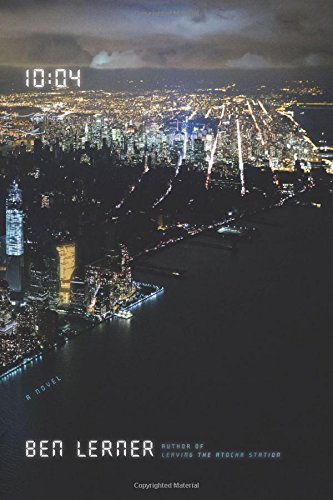
There is no way to talk about Ben Lerner’s 10:04 (4.5/5) without sounding like an insufferably pretentious lit major. Believe me, I’ve tried. A poet’s exploration of how truth is transmuted to story, it’s about as self-consciously meta as they come — a bit of Adaptation, a bit of if on a winter’s night a traveller, and a whole lot of white male neuroses. And, for added snobby measure, it’s set in New York City!
I know, I know. On paper, we don’t need another story like this. And yet, for reasons I can’t explain, I absolutely loved it. I love Lerner’s incisive diction; love the way he pulls meaning out of his day-to-day life while also satirizing the search for meaning. I love its tenuous relationship with truth, its blending of fact (a New Yorker piece Lerner wrote appears here as a New Yorker piece his narrator wrote; his narrator gives a lecture on language and the Challenger explosion which he, also, gave) and dreamlike fiction. It’s a wonderfully lyrical work, with an ending that floored me — I sprinted through the last half of this book in a single sitting. So, maybe I won’t try to explain. This book was written for me. Maybe it was written for you too.
“Would you know what he meant if the author said he never really saw her face, that faces were fictions he increasingly could not read, a reductive way of bundling features in the memory, even if that memory was then projected into the present, onto the area between the forehead and chin? He could, of course, enumerate features: gray-blue eyes, what they call a full mouth, thick eyebrows that she was probably careful to have threaded, a small scar high on the left cheek, and so on. And sometimes these features did briefly integrate into a higher-order unity, as letters integrate into words, words into a sentence. But like words dissolving into sentences, sentences into paragraphs and plots, combining these elements into a face required forgetting them, letting them dematerialize into an effect, and that somehow never happened for long with Hannah, whom he was now beside.”
“When we were over the water, under the cables, we stopped and looked back. Uptown the city was brighter than ever, although as you looked north you saw the darkened projects against the light. They looked two-dimensional, like cardboard cutouts in a stagecraft foreground. Lower Manhattan was black behind us, its densities intuitive. The fireworks celebrating the completion of the bridge exploded above us in 1883, spidering out across the page. The moon is high in the sky and you can see its light on the water. I want to say something to the schoolchildren of America:”
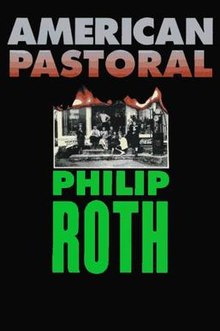
If 2017 represented an intentional shift away from my niche authorial voice (white, neurotic, male), let American Pastoral (5/5) stand as my grand, year-ending bender of a relapse.
This book is incredible, and the plot is irrelevant — it’s no wonder the Ewan McGregor film adaptation was panned. On the page, it is the story of a Newark glove manufacturer (Seymour “Swede” Levov) grappling with the 60’s alongside his politically…let’s say troubled daughter. A heightened look at two different versions of American idealism in the nearly-Watergate era, and an ode to the aspirational power of sports on the side. Yawn. Big deal.
Here’s the thing, though: American Pastoral isn’t about what it’s “about”. It’s about Nathan Zucker (i.e. Roth)’s attempts to piece together a narrative about his old highschool idol the Swede; about the myriad ways we project, and misunderstand, and dramatize in our goal to know each other. It’s about the Rashomon-like way three different people (an author, a bitter brother, and the man himself) will perceive identical events in irreconcilable ways. In that sense, it’s impossible to mentally untangle this book from one of my favorite David Foster Wallace stories, Good Old Neon. Volumes could be written about the comparison. Zucker, like David, is seeking to understand the why of an icon from the distance of hindsight. Why did everything go wrong in Swede’s life, with his cheery, all American, ball-playing exterior? What could it have been like inside his skull-shaped kingdom; what if, just for a moment, we could peer through the keyhole of his personality and inner monologue? Was he happy? Was he naive? Was he tormented by the burden of his success, or “wholly unhaunted by voices telling him that there was something deeply wrong with him that wasn’t wrong with anybody else”?
I found this dissection of the craft of writing to be absolutely brilliant, due in large part to its nonlinear structure. Roth begins with Birds’ Eye summary, then delves into memoir, then revises into omniscient narrator; digging deeper and deeper into one man’s psyche til, by the end we’re so lost in the torrent of inner-monologue we can barely move at all.
Perhaps, in bits and pieces, that structure would feel redundant. I recommend doing what I did: devour it whole.
“You fight your superficiality, your shallowness, so as to try to come at people without unreal expectations, without an overload of bias or hope or arrogance, as untanklike as you can be, sans cannon and machine guns and steel plating half a foot thick; you come at them unmenacingly on your own ten toes instead of tearing up the turf with your caterpillar treads, take them on with an open mind, as equals, man to man, as we used to say, and yet you never fail to get them wrong. You might as well have the brain of a tank. You get them wrong before you meet them, while you’re anticipating meeting them; you get them wrong while you’re with them; and then you go home to tell somebody else about the meeting and you get them all wrong again.”
“Yes, alone we are, deeply alone, and always, in store for us, a layer of loneliness even deeper. There is nothing we can do to dispose of that. No, loneliness shouldn’t surprise us, as astonishing to experience as it may be. You can try turning yourself inside out, but all you are then is inside out and lonely instead of inside in and lonely. My stupid, stupid Merry dear, stupider even than your stupid father, not even blowing up buildings helps. It’s lonely if there are buildings and it’s lonely if there are no buildings. There is no protest to be lodged against loneliness—not all the bombing campaigns in history have made a dent in it. The most lethal of manmade explosives can’t touch it.”
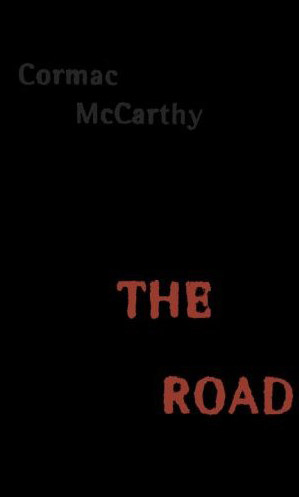
The Road (4.5/5) is, against all odds, my first introduction to Cormac McCarthy; and may have been the perfect way to close my year in literature.
So much has been written about McCarthy’s powers, and The Road in particular, that it feels redundant to explain. He is, quite frankly, the antithesis of my literary icons: where many are dense, he is sparse; where many are overwhelmingly emotional, he is cryptic; where many would weave a tapestry of language and syntax, he is concise, unshowy, and seems to know no punctuation mark but the comma. Even apostrophes are iffy. He’s the perfect digestif after a hearty meal, a bracing shot of something that cleanses the palate and clears out the sinuses for good measure.
If you’re one of the few people who doesn’t know the premise of The Road, I won’t spoil it. I’ll only say this: no one, absolutely no one else, could have told this story the way he told it. The unwaivering vision, the confidence of tone, the steady authorial hand that says “show, don’t tell, and show as little as you need.” To be this much of something, you need to risk being nothing. McCarthy knows exactly what he’s doing.
“No lists of things to be done. The day providential to itself. The hour. There is no later. This is later. All things of grace and beauty such that one holds them to one’s heart have a common provenance in pain. Their birth in grief and ashes. So, he whispered to the sleeping boy. I have you.”
“He walked out in the gray light and stood and he saw for a brief moment the absolute truth of the world. The cold relentless circling of the intestate earth. Darkness implacable. The blind dogs of the sun in their running. The crushing black vacuum of the universe. And somewhere two hunted animals trembling like ground-foxes in their cover. Borrowed time and borrowed world and borrowed eyes with which to sorrow it.”